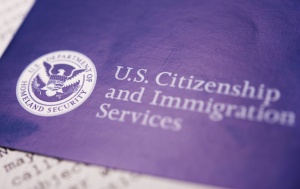Key Points of Newly Announced Immigration Executive Orders
I know many of you have questions about President Obama’s new immigration executive orders. The new orders will clearly impact lots of women and their families as according to the CNN Immigration Fast Facts:
New legal permanent residents of the United States are younger on average than native born residents, more likely to be female and more likely to be married.
With that in mind I wanted to share with you some of the information from my firm’s (LaSusa & Deb, PLLC Attorney’s at Law) website. For more information feel free to contact LaSusa & Deb, PLLC.
The new executive orders President Obama has proposed will make a significant impact on many families and businesses. Though the details are yet to be established here are a few of the key highlights:
For Businesses:
Ensuring that job-creating entrepreneurs have legal means to enter and operate in the U.S.
Increasing access for university affiliated businesses to key talent.
Changing the procedures for adjustment of status to allow legal immigrants caught in the immigration quota backlogs to register their applications and thus begin the final step of the process.
The executive action is expected to promulgate changes to assist immigrants, who depend on H1B visas, to live and work in the U.S. The assumption is that this may affect many businesses, but especially the technology sector.
Directing agencies to look at modernizing the visa system, with a view to making optimal use of the numbers of visa available under law.
For Families:Deferred Action for the parents of U.S. citizen and lawful permanent resident children who fit the eligibility requirements.
Expansion of Deferred Action for Childhood Arrivals (DACA) to remove the age cap and move the continuous presence date up to January 1, 2010. DACA will now be granted for 3 years (including those with pending renewal applications).
Replacement of the controversial Secure Communities program with a “Priority Enforcement Program” program the details of which are still unclear.
Allowing spouses and children of lawful permanent residents to apply for unlawful presence waivers from within the U.S. and ensuring appropriate standards for adjudicating those waivers.
Enabling families of individuals trying to enlist in the armed forces to utilize parole in place to ensure legal status.




















Recent Comments